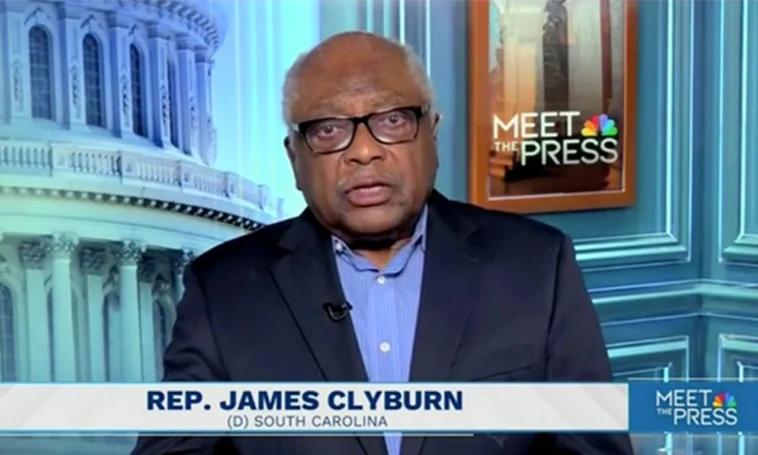Clyburn refutes allegations of collaborating with GOP. The controversy surrounding the redrawing of congressional districts in South Carolina reveals deep-seated issues of political manipulation and racial discrimination within the electoral system. At the center of this storm is Rep. Jim Clyburn, a prominent Democratic figure, who has vehemently denied allegations of collaborating with Republicans to redraw district lines in his favor.
“ProPublica has a report that you actually worked with Republicans on this map to maintain a tighter grip on your own district by ensuring that 30,000 Black voters would move from a neighboring swing district into your own. Was that the case?” NBC News host Kristen Welker asked Clyburn.
In a televised interview with NBC News host Kristen Welker, Clyburn defended himself, asserting that when approached for input on the redistricting process, he merely offered suggestions, which were not followed. He emphasized that his district is not a majority-minority district, contrary to what has been reported, and urged fact-checking of the numbers.
Despite Clyburn’s denials, the allegations have cast a shadow over the integrity of the redistricting process in South Carolina. The involvement of his aide, Dalton Tresvant, in discussions with state Republicans about the new congressional map, as reported by ProPublica, has only added fuel to the fire. The report suggested that Tresvant’s proposals, which included adding Black voters to Clyburn’s district while moving out predominantly white precincts that leaned toward the GOP, were received favorably by Republicans.
The secrecy surrounding these discussions, with the Republicans keeping Tresvant’s map confidential as they worked through the redistricting process, has raised suspicions about the true motives behind the proposed changes. Civil rights groups have accused state lawmakers, predominantly Republicans, of choosing maps that disenfranchise Black voters and favor Republican candidates.
The federal court’s ruling to proceed with the current map, despite it being deemed unconstitutional and discriminatory against Black voters, highlights the urgency of the situation. With primary election procedures rapidly approaching and no remedial plan in place, the court has opted for pragmatism over idealism. However, this decision has only further entrenched the divide between those seeking justice for disenfranchised voters and those protecting their political interests.
The case hinges on South Carolina’s 1st Congressional District, currently held by Republican Rep. Nancy Mace. Last year, a three-judge panel ordered the state to redraw the district after finding that race was used as a proxy for partisan affiliation, violating the equal protection clause of the 14th Amendment to the Constitution. The panel concluded that 30,000 Democratic-leaning Black voters were “exiled” from the district to safeguard Mace’s seat.
This ruling sparked swift backlash from civil rights groups, who filed a lawsuit charging state lawmakers with choosing “perhaps the worst option of the available maps” for Black voters. They argued that the redistricting process was designed to dilute the voting power of Black communities and secure safer seats for Republican candidates.
Despite the legal challenges and public outcry, the Supreme Court has yet to issue a decision on the case, leaving the fate of South Carolina’s congressional districts hanging in the balance. The delay in the Supreme Court’s ruling has only added to the uncertainty surrounding the upcoming elections and further eroded trust in the electoral system.




2 Comments
Leave a Reply2 Pings & Trackbacks
Pingback:Defense Secretary Lloyd Austin refutes allegations of genocide by Israel in Gaza - Hard Knock News
Pingback:Clyburn attributes Trump's gains with Black voters to the media - Hard Knock News